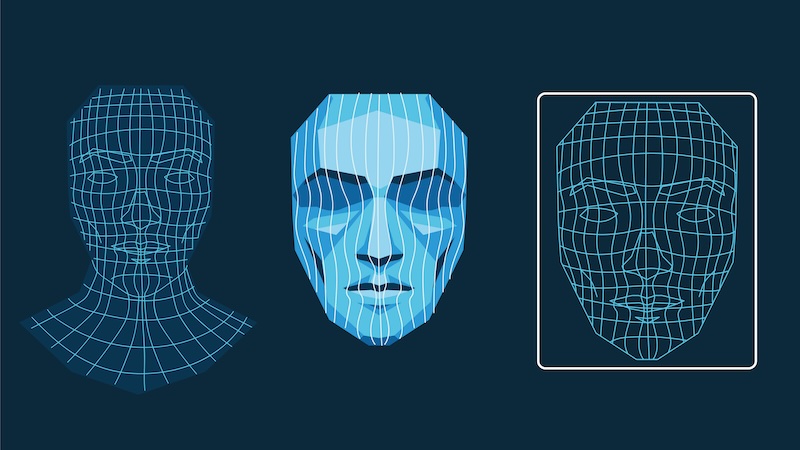
The Federal Ministry of the Interior wants to expand facial recognition to the Internet. According to a draft law, the police should be able to biometrically compare public photos. But the draft doesn’t just leave a lot open. The project would also represent a significant interference with fundamental rights. A comment.
Under the leadership of Minister Nancy Faeser, the Federal Ministry of the Interior (BMI) is currently working on a draft law that will, among other things, extend facial recognition to the Internet. The draft is a so-called draft bill, which is not yet public but is available to several media outlets such as Mirror, taz and Deutschlandfunk was leaked.
Specifically, this means: The BMI has not yet coordinated the draft with the other ministers. In terms of content, there should be enough reason for explosives. The police authorities should be given significantly more powers when it comes to facial recognition – at the expense of fundamental rights.
Facial recognition on the Internet:
Police and law enforcement agencies have been using facial recognition software for years. The Federal Criminal Police Office (BKA), for example, uses the GES facial recognition system so that the police can compare images of unidentified suspects with the Inpol database. So far, so relatively good.
However, Nancy Faeser’s plans go beyond any scope or proportionality. The BMI’s draft stipulates that the police authorities should be able to compare images with data from the Internet that are “publicly accessible”. These can include videos on TikTok, photos on Facebook or selfies on Instagram.
The data comparison should not only be limited to faces. Voice profiles and videos can also be used for biometric comparison – for example, to identify people based on their gait. Faeser apparently wants to officially rule out real-time monitoring.
However, it is unclear when an evaluation takes place in “real time” and when after the fact. For example, image and video material could easily be analyzed with a time delay. This definition problem also exists with the AI Act that recently came into force. However, things become even more problematic with regard to new powers for automated data analysis that the BMI wants to introduce.
Anyone who uses social media does not give up basic rights
Even though the EU’s AI regulations leave a lot of room for interpretation, they exclude biometric facial recognition using AI systems over the Internet. The Federal Ministry of the Interior’s draft is not only irritating, it seems to be like an attempt to introduce biometric recognition processes through the back door.
As the taz reports, the BMI’s draft also envisages – beyond suspects – identifying witnesses and victims of crimes. After identification, the police authorities should also be able to determine the whereabouts of people.
However, especially when it comes to social media, the project represents a stab in the back against fundamental rights. Because people who voluntarily disclose their data on the Internet must not automatically be deprived of their constitutionally guaranteed rights.
Also interesting:
- A lot of ambiguity: AI Act comes into force – and initially doesn’t change anything
- A verdict far too late: Google has a monopoly – because politics has failed
- Stock market crash? No need to panic – stock market corrections are normal
- Monitoring through AI: Germany needs an employee data protection law
The article Stab in the back for fundamental rights: Nancy Faeser plans facial recognition on the Internet by Fabian Peters first appeared on BASIC thinking. Follow us too Facebook, Twitter and Instagram.
As a tech industry expert, I have serious concerns about Nancy Faeser’s plan to implement facial recognition on the internet. While facial recognition technology has the potential to enhance security and streamline processes, it also poses significant risks to individuals’ fundamental rights to privacy and freedom.
Facial recognition technology is notoriously flawed, often misidentifying individuals and disproportionately impacting marginalized communities. Implementing this technology on the internet opens the door to mass surveillance and potential abuse by governments and corporations.
Furthermore, the lack of regulation and oversight in the facial recognition industry raises serious ethical questions about consent, data security, and bias. Without proper safeguards in place, this technology could easily be used to infringe upon individuals’ rights without their knowledge or consent.
As a tech industry expert, I strongly urge Nancy Faeser to reconsider her plans for facial recognition on the internet and instead focus on implementing more transparent and accountable measures to protect individuals’ fundamental rights. It is crucial that we prioritize privacy and security in the digital age and work towards a more ethical and equitable use of technology.
Credits